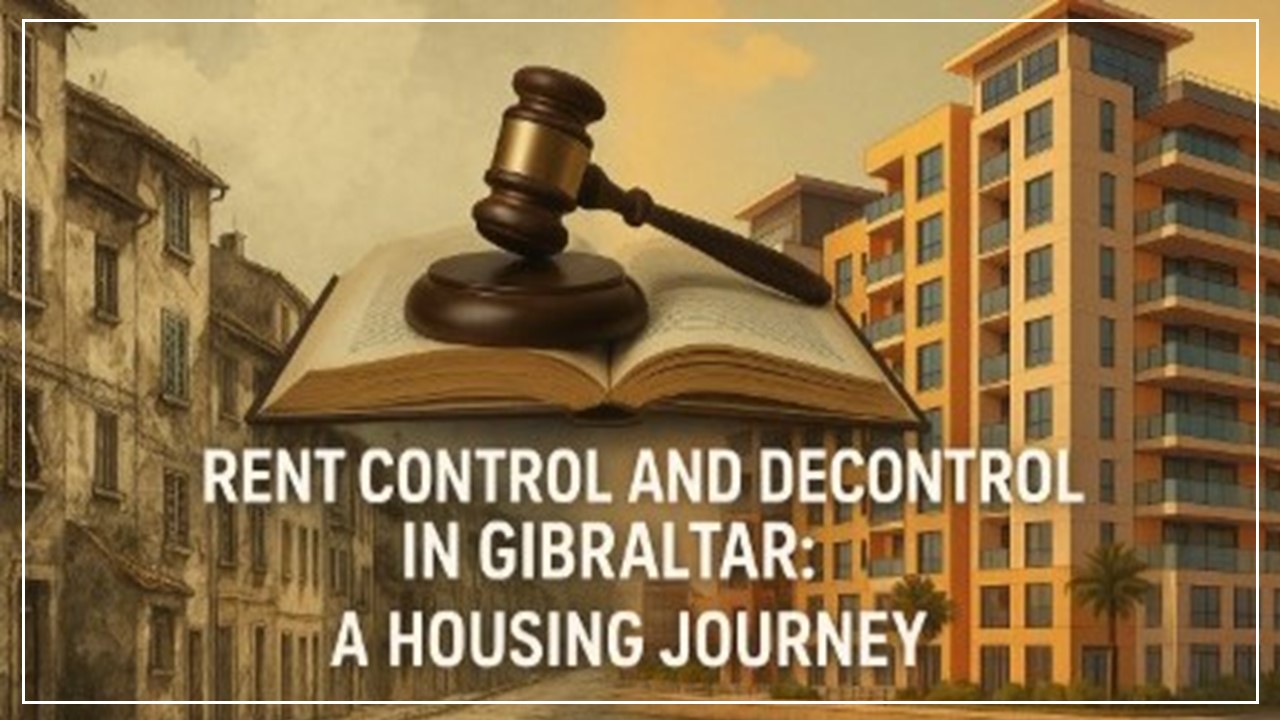Rent Control and Decontrol in Gibraltar: An Overview of the Housing Act 1983 and Its Evolution
Economy | 09 Jun 25, 00:00

Historical Context of Rent Control
Rent control in Gibraltar dates back to 1938, with successive governments maintaining policies to regulate rents, especially in older buildings. The Housing Act 1983 codified these controls, setting fixed rents for certain properties to prevent sudden and unaffordable rent hikes for tenants.
However, this approach has had unintended consequences. Landlords have expressed concerns that fixed rents, often significantly below market rates, hinder their ability to maintain and invest in their properties. For instance, some tenants pay as little as £25 a month, making it financially unviable for landlords to carry out necessary repairs and upgrades. This situation has contributed to the deterioration of some buildings, particularly in areas like the Upper Town.
Legal Challenges and Amendments
In 2013, an amendment to the housing legislation extended rent control to buildings constructed between 1945 and 1959, changing the qualifying period and affecting properties like the Matilde Francis Building. This amendment led to legal challenges, with landlords arguing that the change was unconstitutional. The Supreme Court upheld the amendment, stating that it served a legitimate public purpose.
However, in 2018, the Court of Appeal found the 2013 amendment unconstitutional, highlighting issues with how the legislation was presented and justified in Parliament. The ruling sparked political debates and raised questions about the transparency and motivations behind rent control policies.
The Role of the Rent Assessor
The Housing Act 2007 introduced the role of the Rent Assessor, appointed by the Minister responsible for housing. The Rent Assessor's duties include:
Assessing rents under Section 41 of the Housing Act 2007.
Adjusting rents due to improvements or structural alterations under Section 43.
Issuing certificates of Suitable Alternative Accommodation under Section 45.
Decontrolling dwellings under Section 49.
These provisions allow for some flexibility in rent adjustments, particularly when landlords invest in property improvements. However, increases are capped, and certain conditions must be met, such as tenant consent and the necessity of the improvements.
Decontrolling Properties
Decontrol refers to the process of removing a property from rent control regulations. Under Section 49 of the Housing Act 2007, landlords can apply for decontrol, subject to specific criteria and approval by the Rent Assessor. This mechanism aims to balance tenant protections with the need for landlords to maintain and invest in their properties.
Additionally, in 2023, the government lifted resale restrictions on affordable housing estates over 30 years old, provided certain conditions are met. This move allows for greater flexibility in the housing market and acknowledges the changing needs of long-term homeowners.
Ongoing Debates and Future Considerations
The rent control framework in Gibraltar continues to be a topic of debate. Landlords argue that current regulations disincentivize property maintenance and investment, leading to urban decay. Conversely, tenants and housing advocates emphasize the importance of rent control in ensuring housing affordability and preventing displacement.
As Gibraltar's housing market evolves, policymakers face the challenge of balancing these competing interests. Potential reforms may include revising rent control thresholds, providing incentives for property improvements, and enhancing transparency in legislative processes.
Our View
The Housing Act 1983 and subsequent amendments have played a crucial role in shaping Gibraltar's housing landscape. While rent control policies have protected tenants, they have also presented challenges for landlords and urban development. Ongoing dialogue and thoughtful reforms are essential to ensure that Gibraltar's housing policies meet the needs of all stakeholders.
The word "controlled" can often be misleading. There was never a process by which individual units were "controlled" and it's more simply an assumption that properties built pre-war cannot be rented out at market rates. Many people buy properties pre-war to live in as the character, architecture and - often - location are extrememly attractive. The consideration of whether or not they can be let out is immaterial. This, coupled with the fact that the decontrolling process is relatively straight foward and doesn't involve huge costs, means the value difference between properties that have been de-controlled or not is marginal.
If you are considering selling a pre-war property and have questions over its requirement for de-controlling, contact one of our sales team today.
*disclaimer: This article is meant for interest purposes only and should not be taken as legal advice